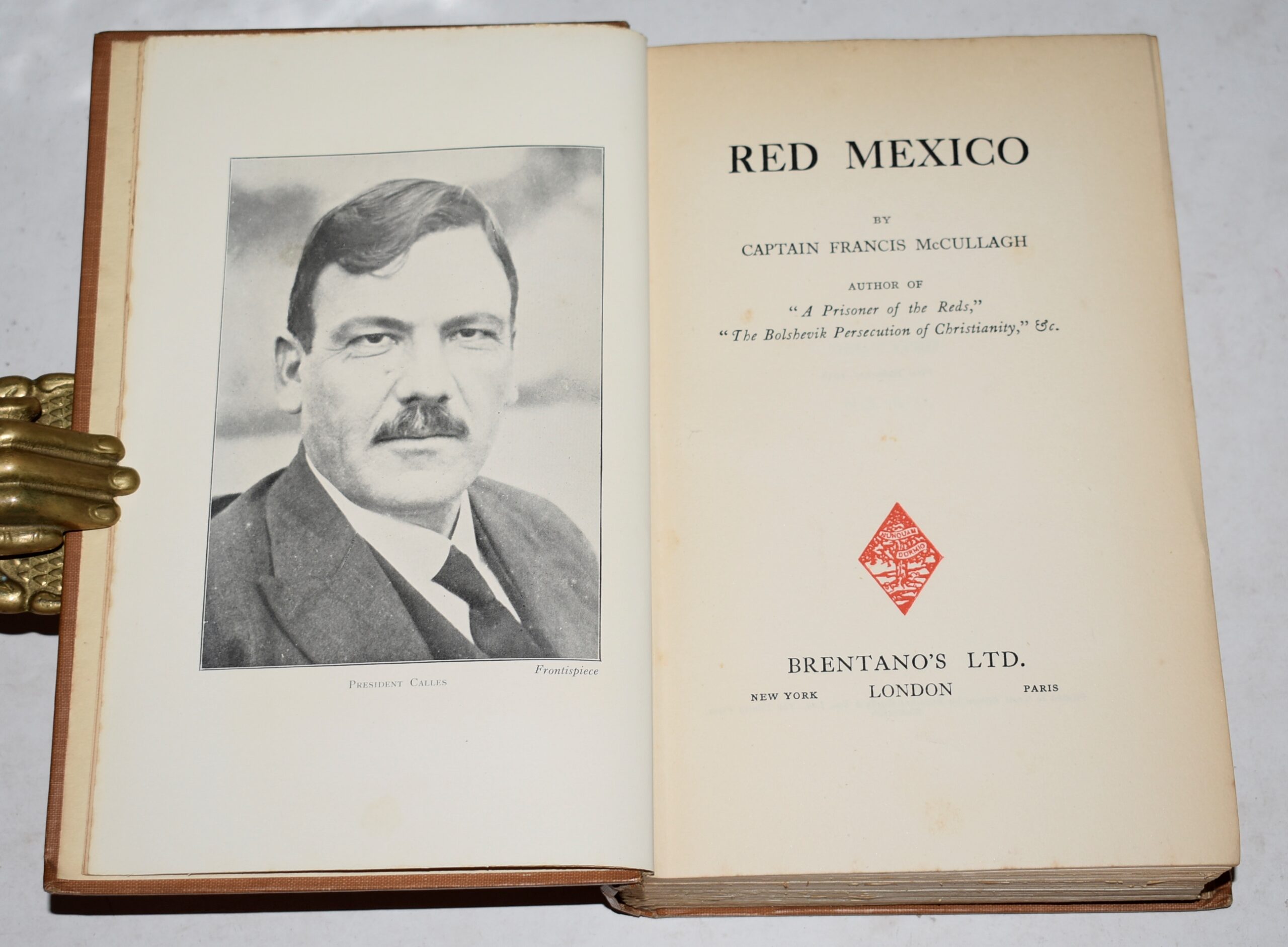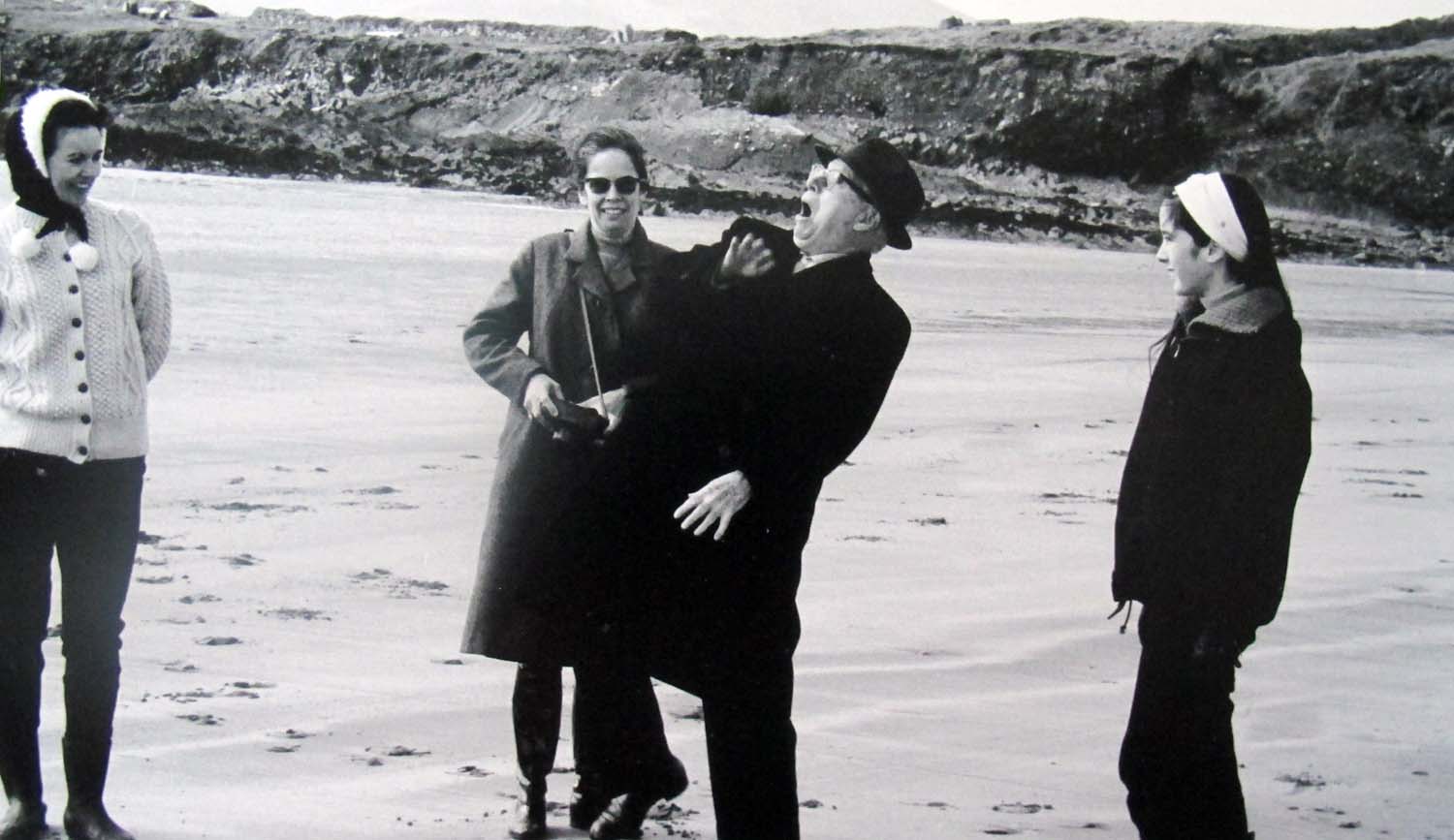BY AODHÁN CREALEY
NOVEMBER
25/1956

Francis McCullagh (82), war correspondent, died. A thirst for adventure and a fascination with international affairs brought McCullagh to most of the major wars of his day. Fluent in a number of languages, including Russian and Japanese, he won international acclaim for his reports on Bolshevism and the Russian Revolution. Travelling across the country by train in the depths of winter, he made several stops, including one to interview the sinister Yakov Yurovsky, commander of the guard responsible for murdering Czar Nicholas and his family in June 1918, during which he was too terrified to mention that atrocity and instead nervously questioned him on the merits of his new job in the Soviet regime as, of all things, ‘an inspector of life insurance’. Arriving in Moscow, he was briefly imprisoned but not before mingling with crowds attending meetings addressed by Lenin and Trotsky. His subsequent book, A prisoner of the Reds (1921), one of a number he wrote during his travels, is considered one of the best on Russia in the aftermath of the Revolution. A committed Catholic, he later became more of a campaigner than a journalist. Staunchly pro-Franco, he took out a full page in the Irish Independent during the Spanish Civil War (1936–9), unsuccessfully appealing to de Valera to come out in favour of the Nationalists—‘the poor, the educated …’—against the Republicans—‘the priest-hunter, the international communist’. His last years were lonely ones. Confined to a New York State mental institution, he died unmarried, his novel on 1798 in Ireland left unpublished and his reputation largely forgotten. The Irish Independent was the only Irish newspaper to mention his passing.
03/1324
Petronella de Meath, maidservant to the notorious Dame Alice Kyteler, was flogged and burned at the stake for heresy, one of the first cases of a person being charged with witchcraft in Europe.
03/1924
Alexander Bowman (69), Presbyterian trade unionist who was the first Independent Labour candidate to contest a parliamentary seat in Ireland (North Belfast, 1885), died.
07/1974
A British soldier and a civilian were killed and 26 people, including five soldiers, injured when an IRA bomb was thrown through the window of the King’s Arms public house in Woolwich.
08/1974
Richard John Lucan (39), the 7th Earl of Lucan, Baron Lucan of Castlebar, Co. Mayo, disappeared after the murder of his children’s nanny at his family home in Belgravia.
14/1984
Minister for Transport Jim Mitchell announced that the Irish Shipping Company (founded 1941) had been forced into liquidation.
17/1974
Erskine Hamilton Childers (68), fourth president of Ireland since June 1973 and the first to make an official State visit to a European country (Belgium, May 1974), died suddenly from a heart attack.
19/1924
Cardinal Michael Logue (84), archbishop of Armagh and primate of all Ireland since 1887, who completed the construction of St Patrick’s Cathedral in Armagh (1904), died.
21/1974
The IRA bombed two public houses in Birmingham, killing 21 people and injuring over 180 others, including a number of Irish citizens.
23/1974
Cornelius Ryan (54), Dublin-born journalist and author, notably of the best-sellers The longest day: 6 June 1944, D-Day (1959) and A bridge too far (1974) on the Battle of Arnhem (September 1944), died.
DECEMBER
25/1977

Charles Spencer Chaplin (88), comic and film-maker, died at his home in Manoir de Ban, Switzerland. The subject of one of the world’s most familiar images—the gentleman tramp, complete with bowler hat and cane—Chaplin is commemorated in various parts of Ireland. In the early 1900s he performed several times in Belfast music-halls, lodging at 24 Joy Street near the city centre. Some years ago, when a prominent firm of architects relocated there, they placed a small bronze statue of the great man at the front of the building. When he checked in at the Slieve Donard Hotel in Newcastle, Co. Down, in the autumn of 1920, signing the register simply as ‘Charlie Chaplin, New York’, he was internationally famous, prompting the management to rename the bar in his honour. Worn out at the time by an acrimonious divorce from his first wife, local lore has it that he was there to seek out the relations of his first true love, the Irish dancer Florence ‘Hetty’ Kelly. But one associates him mostly with County Kerry. In the summer of 1959, seven years after being hounded out of the US during the ‘Red Scare’, he booked into the Butler Arms Hotel in Waterville along with his fourth wife, Oonagh O’Neill, daughter of the playwright Eugene O’Neill, whom he had married in 1943 when she was only eighteen years old. The happy couple—it was a very successful marriage—returned with their eight children for another nine summers. Today he is honoured by a fine statue in the centre of the village.
02/1924
William Craig, hard-line minister for home affairs in Terence O’Neill’s government (1963–70) who rigidly opposed concessions to the Northern Ireland Civil Rights Association, born in Cookstown, Co. Tyrone. In 1977, as a member of the Council of Europe, he was appointed to initiate research to update the European Convention on Human Rights.
03/1974
Cearbhall Ó Dálaigh was returned unopposed as fifth president of Ireland.
08/1974
The Irish Republican Socialist Party (IRSP) and the Irish National Liberation Army (INLA) were formed in Dublin, breakaways from Official Sinn Féin and the Official IRA respectively.
10/1974
Seán MacBride was presented with the Nobel Prize for Peace in Oslo ‘for his efforts to secure and develop human rights throughout the world’. He shared the prize with Eisaku Sato, former Japanese prime minister.
19/1924
Last edition of the Freeman’s Journal (founded 1763). Its title was bought by William Martin Murphy’s Independent Group, publishers of the Irish Independent (founded 1905).
20/2004
£26.5m in cash was stolen from the headquarters of the Northern Bank in Belfast. Chief Constable Hugh Orde later blamed the IRA.
22/1974
Following talks with Protestant church leaders in Feakle, Co. Clare, earlier that month, the IRA announced a cease-fire, which ran to the middle of the following month.
26/2004
An estimated 227,898 people in fourteen countries, including four Irish citizens, lost their lives in the devastating Boxing Day/Asian Tsunami.
31/1964
Daniel Corkery (86), Fianna Fáil politician and writer, author notably of Hidden Ireland (1924), a study of eighteenth-century Irish-language poets in Munster, died.
